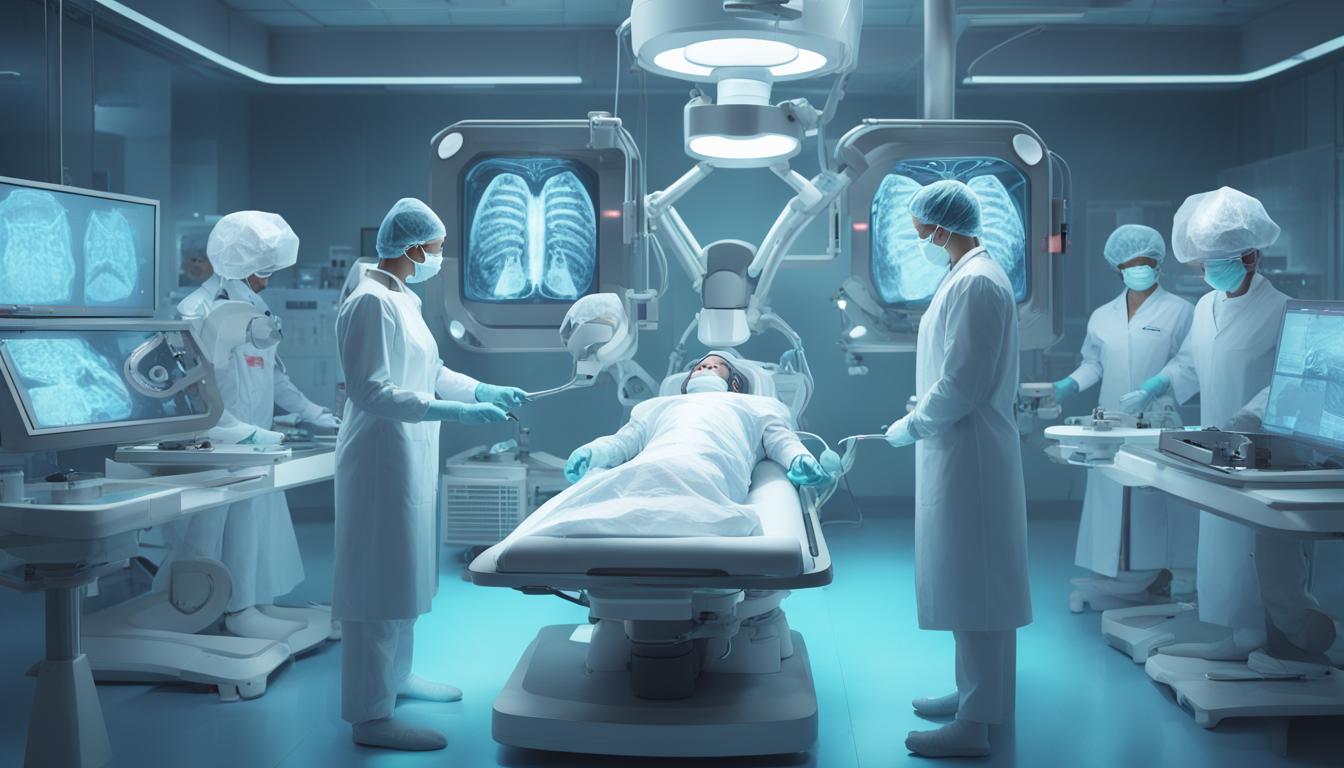Doctors at the Royal Brompton Hospital in London are testing a revolutionary robotic system for the diagnosis and treatment of lung cancer, focusing on more precise and less invasive techniques.
Doctors at the Royal Brompton Hospital in London are currently conducting a trial involving a new robotic technology for the diagnosis and treatment of lung cancer. This innovative procedure utilizes a robot-guided tube to accurately target and remove lung nodules through microwave ablation, a process that uses heat to destroy cancer cells.
Professor Pallav Shah, a consultant respiratory physician, is leading the trial and has reported promising results, although it is still in the early stages. The technology aims to diagnose and excise cancerous cells in a single procedure, offering a more efficient and less invasive approach compared to traditional methods.
The Royal Brompton Hospital’s trial focuses initially on lung cancer patients who are unsuitable for surgery, with the potential to expand to all eligible patients. The use of robotics assists in creating a precise 3D map of a patient’s lungs, which enhances the accuracy of the treatment.
This procedure has the potential to significantly reduce procedure times, increase success rates for early lung cancer identification, and potentially decrease NHS waiting times. Each year over 43,000 people in the UK are diagnosed with lung cancer, and early detection is critical for effective treatment.
While initial costs for adopting this robotic technology may be high, the long-term benefits could result in considerable savings for healthcare services, mitigating expenses associated with extended treatments like chemotherapy and radiotherapy. As the trial progresses, its success could lead to broader implementation across the NHS, transforming the way lung cancer is treated in the UK.













